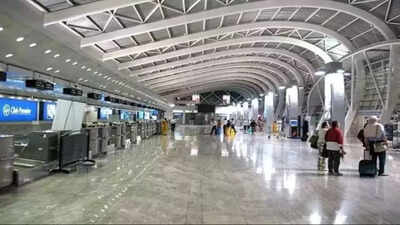Twin bird hits sends alarm bells ringing; DGCA asks airports to act quickly to minimise risk

NEW DELHI: Following two bird hits on Sunday — one each on SpiceJet and IndiGo that those sent those flights back to the origin airports soon after take off — the Directorate General of Civil Aviation (DGCA) on Monday asked airport operators to immediately take steps to minimise this risk. The incidence of bird hits rises during any season as waterlogged ground sends worms and insects to the surface, attracting birds even more than the what the garbage dumped and abattoirs on the approach path of aircraft and near airports do.
“We are all aware that during monsoon season wild life (birds and animals) activity increases in and around airports. Presence of wildlife in airport vicinity poses a serious threat to aircraft operational safety. All airports are requested to review their wild life hazard management plan for any gap and ensure strict implementation of strategies for wild life hazard management within and also outside the airfield,” DGCA joint DG Maneesh Kumar has said in a letter to all airport operators and airport directors.
Within the airport, the steps to be taken include: “grass trimming and spraying of insecticides; frequent runway inspection for bird activities; deployment of bird chasers and bird scaring devices; Regular garbage disposal in the operational area and avoiding water concentration and open drains.”
For tackling the issue outside airport premises, Kumar says: “Airport Environment Management Committee (AMC) meetings (should) be convened to discuss and review implementation of measures to reduce bird hazard. Frequent inspection by airport wild life hazard management team/AMC to identify sources of wild life attraction such as garbage dump, open disposal of abattoir/butcheries waste and coordination with local authorities for mitigation of sources of wild life attraction.”
Airports operators have been asked to send an action taken report to the DGCA.
On Sunday afternoon, a SpiceJet Boeing 737 with 191 people on board suffered a bird hit soon after taking off from Patna for Delhi on Sunday afternoon, leading to sparks and fire in one of the engines. The pilots switched off the affected engine and landed back in Patna safely.
And hours later, an IndiGo aircraft had to return to Guwahati soon after taking off from there for Delhi after the Airbus A320 NEO suffered a bird hit. The pilots of this flight 6E-6394 shut down the affected engine, declared PAN-PAN (emergency) and returned safely to Guwahati.
The Aircraft Act, 1934, specifically prohibits any slaughtering or flaying of animals or dumping garbage in a way which could attract animals and birds within a 10-km radius of airports. “Such activity is a cognizable offence under section 10(1B) of the Aircraft Act, 1934… airfield environment management committees at airports (which are headed by chief secretaries) should take proactive measures on time-bound basis to ensure that no illegal slaughter houses, garbage dumps exist in the vicinity of airports. (these) are source of increased bird activity and may lead to wildlife strikes to aircraft during approach/take off,” the DGCA had told states a few years ago.
FacebookTwitterInstagramKOO APPYOUTUBE





